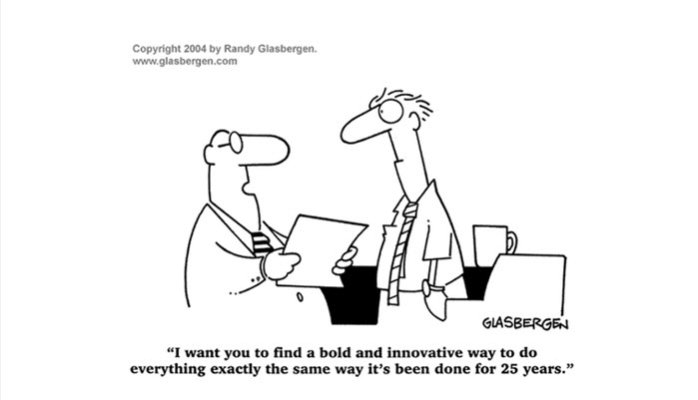The salesperson was getting frustrated. We were doing a deal review. It was a huge deal for him, and important deal for the company, for the quarter.
He’d been working on the deal for several years. In recent months, he’d finally gotten some key users interested in the product he sold. They had committed to take the proposal to senior management to get approval.
“I’m confident this will close this quarter,” he stated.
I asked a question, “Why should they change?”
The sales person was confused, I suppose a little frustrated with why I, an outside consultant, was questioning him.
“Why should they change, why should they buy now?”
“Well, they like our product and want it….”
“But why should they change now, what happens if they do nothing?”
“They’ve decided they want to buy our product….”
“But you’ve been trying to get them to buy for a number of years, they’ve never needed or been able to buy the product, what’s different now?” I persisted.
“Well, they’ve decided they want it and are presenting it to senior management. We will get this order!”
“What is senior management looking for? Why should the approve this expenditure?”
“I don’t know, but it really doesn’t matter. My customers want it!” The sales person was getting increasingly frustrated.
“Look, I know how badly you want this, I know how long you’ve worked on this. I’ve never met this customer, you know them better,” I stated.
“But this just doesn’t make sense, we are in the worst economic downturn any of us have ever experienced. Every company is being cautious, they are investing in things that are ‘mission critical’ now.”
“Why should they do this now, when they have never found the need for this before? What happens if they don’t do it now?”
“Nothing will happen, but the users want it and they will get what they want!” The sales person was clearly finished answering my questions.
The meeting date with the approving executives came and went. The users had made their case.
You already know the outcome.
As sales people, there are two fundamental questions we must know the answers to:
- Why does the customer believe they must change now?
- What are the consequences to the customer if they don’t make that change now?
If we can’t answer those questions, if the customer doesn’t know the answers to those questions, the deal is pure wishful thinking.
Even of the customer wants our product, their management is going to look at those issues, Why now, What happens if we don’t change.
Can you answer those two questions for every qualified opportunity in your pipeline?

Leave a Reply